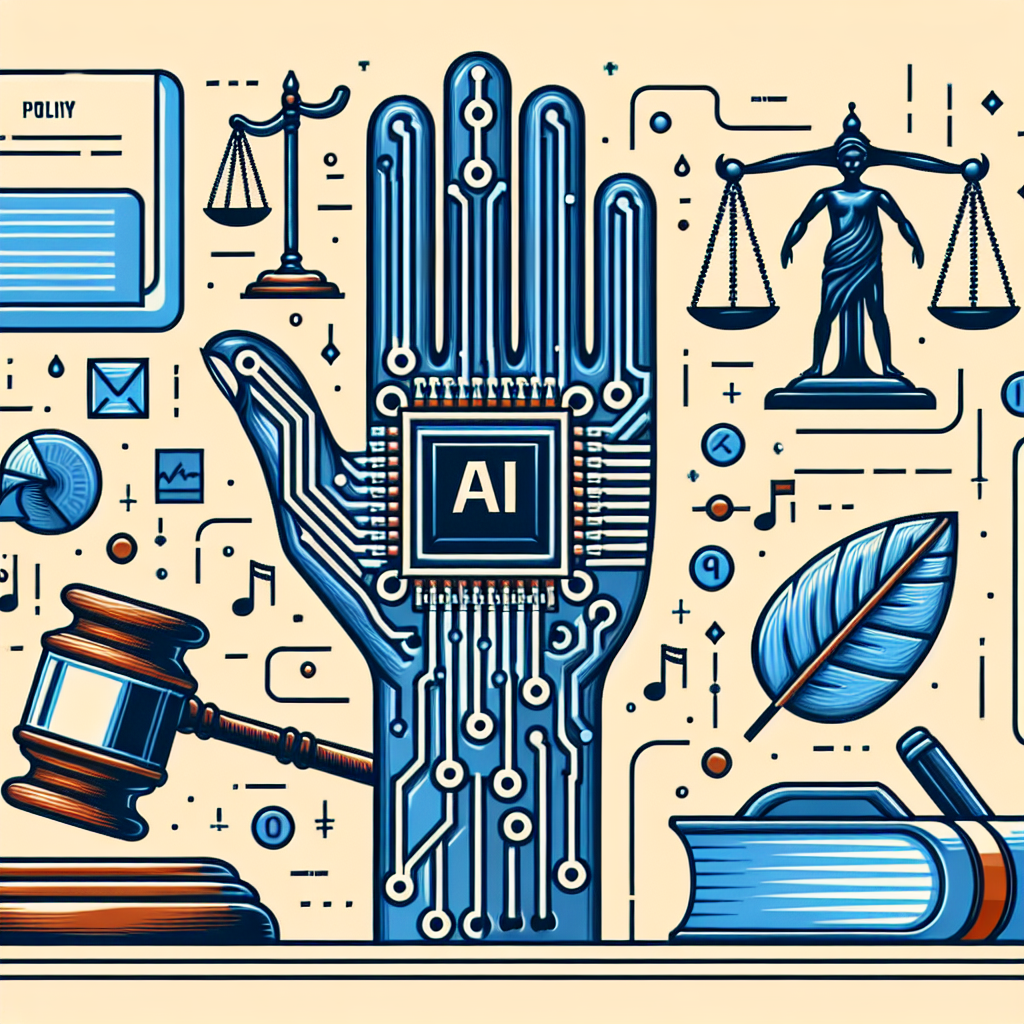In the past few years, artificial intelligence (AI) has become increasingly prevalent in our daily lives. From personalized recommendations on streaming services to autonomous vehicles, AI is transforming the way we live, work, and interact with technology. However, with this rapid advancement comes a host of ethical and regulatory challenges. As AI becomes more pervasive, it is essential to ensure that its benefits are shared equitably and that its risks are mitigated. This is where the concept of democratizing AI comes into play.
Democratizing AI is the idea that the benefits of AI should be accessible to all, not just a select few. This means making AI technology more affordable, transparent, and inclusive. It also involves ensuring that AI systems are developed and deployed in a way that is ethical and aligned with societal values. In order to achieve this goal, it is crucial to have the right policies and governance mechanisms in place.
The Role of Policy in Democratizing AI
Policy plays a crucial role in democratizing AI. Governments around the world are increasingly recognizing the importance of AI and are taking steps to regulate its development and deployment. In the United States, for example, the National AI Research Resource Task Force was established to develop a roadmap for democratizing access to AI research resources. In Europe, the European Commission has released a set of guidelines for trustworthy AI, which aim to ensure that AI systems are developed and used in a way that is transparent, accountable, and fair.
These policies are designed to address a range of issues, from data privacy and security to bias and discrimination in AI algorithms. They also seek to promote collaboration between government, industry, and academia to ensure that AI benefits society as a whole. By setting clear guidelines and standards for the development and deployment of AI, policymakers can help to ensure that AI technology is used responsibly and ethically.
The Role of Governance in Democratizing AI
In addition to policy, governance also plays a critical role in democratizing AI. Governance refers to the processes and structures that guide the development and deployment of AI systems. This includes mechanisms for ensuring transparency, accountability, and oversight of AI technology. Governance mechanisms can take many forms, including industry standards, certification programs, and regulatory bodies.
One key aspect of governance is ensuring that AI systems are developed and deployed in a way that is ethical and aligned with societal values. This means addressing issues such as bias and discrimination in AI algorithms, ensuring that AI systems are transparent and explainable, and protecting the privacy and security of data. It also involves establishing mechanisms for accountability and redress in cases where AI systems cause harm or violate ethical norms.
Another important aspect of governance is promoting diversity and inclusion in the development of AI technology. Research has shown that AI systems are often biased against certain groups, such as women and people of color. By promoting diversity and inclusion in the AI workforce, governance mechanisms can help to ensure that AI technology is developed in a way that reflects the diversity of society and is free from bias and discrimination.
FAQs
Q: What are some examples of policies that can help democratize AI?
A: Some examples of policies that can help democratize AI include data privacy regulations, transparency requirements for AI algorithms, and guidelines for ethical AI development. These policies are designed to ensure that AI technology is developed and deployed in a way that is responsible and ethical.
Q: How can governance mechanisms promote diversity and inclusion in AI development?
A: Governance mechanisms can promote diversity and inclusion in AI development by encouraging companies to hire a diverse workforce, establishing mentorship programs for underrepresented groups, and promoting inclusive practices in AI research and development. By promoting diversity and inclusion, governance mechanisms can help to ensure that AI technology reflects the diversity of society and is free from bias and discrimination.
Q: What are some challenges to democratizing AI?
A: Some challenges to democratizing AI include ensuring that AI technology is accessible to all, addressing bias and discrimination in AI algorithms, and ensuring that AI systems are developed and deployed in a way that is ethical and aligned with societal values. These challenges require a multi-faceted approach that involves policymakers, industry stakeholders, and the public.
Q: How can individuals contribute to democratizing AI?
A: Individuals can contribute to democratizing AI by advocating for policies that promote transparency and accountability in AI development, supporting efforts to promote diversity and inclusion in the AI workforce, and raising awareness about the ethical implications of AI technology. By becoming informed and engaged citizens, individuals can help to ensure that AI technology benefits society as a whole.

